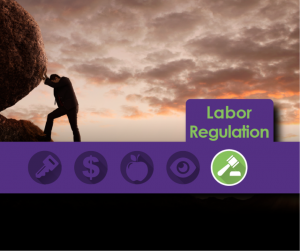By Alex Kanode
Last month, a bill was filed in the Arkansas Senate that would delicense barbers and make them pay a $50 fee and a $2,000 surety bond to the Department of Health. A surety bond is an agreement between the practitioner and the board that the practitioner will follow the rules. This agreement is backed up by a third party, the insurer.
Ever since then, there has been news story after news story of barbers upset with this idea. They are concerned it will damage their professionalism and brand, but they also worry that consumers won’t be able to tell the quality of their barbers and might be in danger.
The bill was pulled, but the issue remains. As ACRE Affiliate Marc Kilmer shows in his recent policy review, these reforms are rapidly happening across other states. Similar concerns are voiced in our neighboring state, Texas. A Texas legislator filed a bill to delicense both barbers and cosmetology, which has led to similar complaints from practitioners.
One Texas cosmetologist compared allowing anybody to cut your hair with allowing anybody to cook your food. This raises a good question. How do we determine who cooks our food and are there things that the restaurant industry does that barbers could do too? The answer is in market forces and private certification.
That’s what Art Carden, an Associate Professor of Economics at Samford University, says in “Abolish the Barber Board,” an article published by the American Institute for Economic Research. Carden recently visited UCA as part of ACRE’s Distinguished Speaker Series, giving a speech titled “Constraining Prices and Unintended Consequences.”
How can market forces improve and sort for barber quality? Carden tells a story about the ways the market can sort for quality through consumer choice: “I’m reminded of a joke that illustrates: A barber was worried when a shop opened across the street advertising $6 haircuts. After a flash of inspiration, he posted a sign saying ‘We Fix $6 Haircuts.’” We also see this in the food industry as people can use Yelp and word of mouth to tell the difference of quality between restaurants and assess their risks.
There is another powerful tool to sort for quality: private certification. Third party associations sometimes offer certificates to practitioners who complete their training and education. For example, the National Restaurant Association offers the ServSafe program to those who want to show they’re professional chefs.
Delicensing barbers or cosmetologists wouldn’t leave the public unprotected. The industry would adapt. Perhaps by creating its own standards similar to the way the restaurants do. Or in other ways. If public health and safety can be as well protected at a lower level of regulation, and barbers have produced no evidence that it can’t, the state should default to that.
To see measures of the burden of occupational licensing in Arkansas, look at this research paper by ACRE affiliate Tom Snyder.
For more on this topic, check out our labor market regulation research page.

